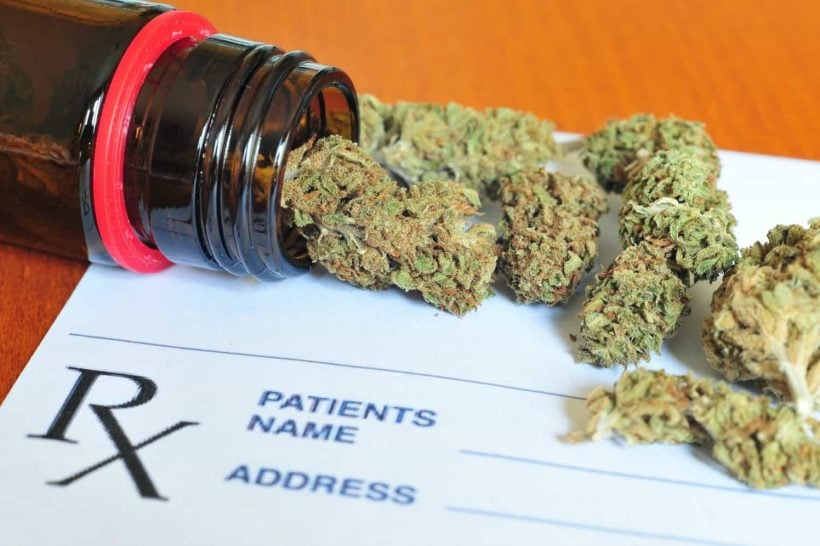Discover an Experienced Medical Cannabis Doctor for Effective Therapy
Discover an Experienced Medical Cannabis Doctor for Effective Therapy
Blog Article
Shedding Light on What Medical Cannabis Can Cure: an Extensive Evaluation of Its Restorative Properties
In current years, there has actually been a growing rate of interest in the healing possibility of clinical cannabis. While unscientific proof abounds, a complete exam of the scientific information relating to the effectiveness of clinical cannabis in treating these problems is necessitated.
Chronic Pain Management
Chronic pain management stays a vital facet of clinical treatment, necessitating an extensive method for efficient therapy. Over the last few years, medical cannabis has actually arised as a potential healing alternative for individuals experiencing chronic pain conditions. The endocannabinoid system, which plays an important function in pain inflection, has been targeted by cannabis-based therapies to alleviate signs and boost lifestyle for clients.

In addition, clinical marijuana supplies a promising option for people that experience unbearable adverse effects from typical pain drugs. Its ability to deal with pain with a different system makes it a valuable enhancement to the toolbox of treatments readily available for chronic discomfort management.
Epilepsy Treatment Possible
Medical marijuana has shown promising potential in the treatment of epilepsy, providing an unique restorative strategy for handling seizures in clients. Epilepsy is a neurological problem identified by recurrent seizures, affecting individuals of every ages. Traditional treatments for epilepsy consist of antiepileptic medicines, yet these medications might not work for all people and can have substantial negative effects.
Research on making use of clinical marijuana for epilepsy has actually exposed encouraging outcomes. Cannabidiol (CBD), a non-psychoactive substance located in cannabis, has actually been especially highlighted for its anticonvulsant residential properties. Researches have shown that CBD can minimize the frequency and intensity of seizures in clients with treatment-resistant types of epilepsy, such as Dravet syndrome and Lennox-Gastaut disorder.
In Addition, the FDA has accepted a CBD-based medication, Epidiolex, for the therapy of seizures related to these serious kinds of epilepsy. This milestone highlights the expanding recognition of clinical cannabis as an important restorative choice for managing epilepsy and provides expect individuals that have not reacted well to traditional treatments.
Nausea Relief Advantages
The alleviation of nausea or vomiting with using cannabis has been significantly identified for its healing benefits in different clinical problems. Nausea and throwing up are typical signs and symptoms experienced by people undergoing chemotherapy, those with food poisonings, and people with chronic pain problems. Medical marijuana, with its active substances such as THC and CBD, has shown pledge in giving relief from nausea or you could try here vomiting.
In addition, clinical marijuana supplies a natural choice for people who do not react well to traditional anti-nausea medications or who experience serious side effects from these medications. Patients undertaking chemotherapy, particularly, have reported substantial improvements in their quality of life when making use of marijuana to manage nausea. As research in this field proceeds to expand, clinical marijuana is significantly being considered as a useful option for nausea or vomiting relief in various clinical settings.
Anxiousness Reduction Results
Researches have actually shown the potential of cannabis in minimizing anxiousness signs and symptoms through its interaction with the endocannabinoid system. The endocannabinoid system plays a crucial function in controling emotions, including stress and anxiety, by preserving homeostasis in the body. Cannabinoids in marijuana, such as THC and CBD, connect with the endocannabinoid receptors in the brain, especially the CB1 and CB2 receptors, to regulate anxiety-related reactions.

Patients with conditions like generalized stress and anxiety disorder (GAD), social stress and anxiety disorder, and post-traumatic stress problem emergency care near me (PTSD) might gain from the anxiolytic Go Here residential properties of marijuana (Medical Marijuana Doctor Near me). Nonetheless, more study is required to figure out optimal does, distribution approaches, and lasting results on stress and anxiety administration.
Potential for Swelling Control
With its recognized anti-inflammatory residential or commercial properties, cannabis has shown guarantee in potentially controlling swelling within the body. Inflammation is the body's natural feedback to injury or infection, but when it becomes persistent, it can contribute to numerous conditions such as joint inflammation, inflammatory digestive tract condition, and even heart illness. Research study suggests that the cannabinoids located in marijuana, such as THC and CBD, can help minimize and regulate the immune feedback inflammation.
Researches have actually shown that cannabis can communicate with the endocannabinoid system, which plays an essential role in managing inflammation. By targeting the cannabinoid receptors, cannabis substances can modulate the immune action, leading to a decrease in swelling levels. This makes cannabis a prospective prospect for taking care of inflammatory problems where conventional treatments have failed.
Furthermore, cannabis-derived items like CBD oil have actually obtained appeal for their anti-inflammatory residential properties, with lots of people using them as an all-natural solution for problems connected with inflammation. While more research study is needed to fully comprehend the devices behind marijuana's anti-inflammatory effects, present searchings for show encouraging outcomes for the prospective usage of clinical marijuana in regulating swelling.
Conclusion
To conclude, clinical marijuana has actually revealed appealing restorative homes in managing chronic discomfort, treating epilepsy, eliminating queasiness, reducing anxiousness, and regulating inflammation. Its potential benefits in numerous clinical problems highlight the value of further study and expedition into its medicinal use. The evidence recommends that clinical cannabis can be a useful choice therapy alternative for people looking for remedy for a series of signs and symptoms and problems.
In recent years, medical marijuana has actually emerged as a possible healing alternative for individuals enduring from chronic discomfort conditions.Medical marijuana has actually shown appealing capacity in the therapy of epilepsy, using a novel healing method for taking care of seizures in patients. As study in this area continues to grow, medical marijuana is significantly being considered as a useful option for nausea alleviation in different medical settings.
In final thought, medical marijuana has shown promising therapeutic homes in handling chronic pain, treating epilepsy, eliminating queasiness, decreasing anxiousness, and regulating inflammation. The proof suggests that medical marijuana can be a useful option treatment option for patients seeking alleviation from a variety of signs and symptoms and conditions.
Report this page